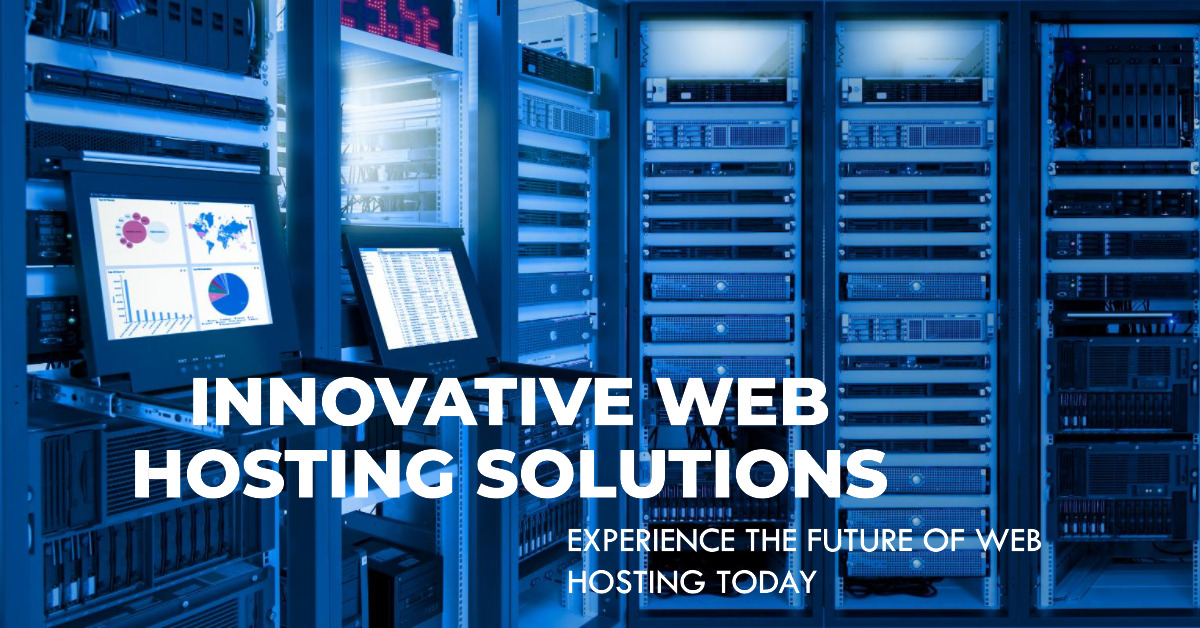Web hosting is the foundation of the internet, and it’s constantly evolving to meet the needs of businesses and individuals alike. New technologies and innovations are emerging all the time, and web hosting providers are working hard to keep up.
In this blog post, we’ll take a look at some of the most exciting web hosting innovations that are happening right now. We’ll cover everything from cloud hosting and edge computing to AI and automation and green hosting.
Cloud hosting
Cloud hosting is one of the biggest trends in web hosting today. It offers a number of advantages over traditional on-premises hosting, including scalability, flexibility, and cost savings.
With cloud hosting, you can easily scale your resources up or down as needed, without having to worry about managing your own hardware and software. This makes it ideal for businesses of all sizes, from startups to large enterprises.
Cloud hosting is also very flexible. You can choose the specific resources that you need, and you can change your plans at any time. This makes it ideal for businesses with changing needs.
Finally, cloud hosting can be very cost-effective. You only pay for the resources that you use, and you don’t have to invest in expensive hardware and software upfront.
Edge computing
Edge computing is another innovative technology that is changing the web hosting landscape. Edge computing brings data processing closer to the end user, which can improve performance and reduce latency.
Traditionally, web servers have been located in centralized data centers. This means that data has to travel a long way to reach users, which can lead to latency.
With edge computing, web servers are placed closer to users, such as at the edge of the network. This means that data doesn’t have to travel as far, which can improve performance and reduce latency.
Edge computing is also very beneficial for security. By processing data closer to the end user, edge servers can help to protect data from attack.
AI and automation

AI and automation are also playing a major role in web hosting innovation. Web hosting providers are using AI and automation to improve performance, security, and efficiency.
For example, AI can be used to monitor and optimize server performance. AI can also be used to detect and mitigate security threats.
Additionally, web hosting providers are using automation to streamline tasks such as provisioning servers and configuring applications. This can free up human resources to focus on more strategic tasks.
Green hosting
Green hosting is another important trend in the web hosting industry. Green hosting providers use renewable energy sources and other sustainable practices to reduce their environmental impact.
This is important because the web hosting industry consumes a lot of energy. By choosing a green hosting provider, you can help to reduce your environmental impact.
Serverless architecture
Serverless architecture is a new approach to web hosting that is gaining popularity. With serverless architecture, you don’t have to worry about managing servers or infrastructure. Instead, you simply deploy your code and the cloud provider takes care of the rest.
Serverless architecture offers a number of advantages, including scalability, flexibility, and cost savings. It’s also very easy to manage, which makes it ideal for developers.
Containerization
Containerization is another innovative technology that is changing the way that web applications are developed and deployed. Containerization allows you to package your application and all of its dependencies into a single container. This makes it easy to deploy and run your application on any platform.
Containerization is often used in conjunction with cloud hosting and serverless architecture. It’s a powerful tool that can help you to improve the scalability, flexibility, and cost-effectiveness of your web applications.
Kubernetes
Kubernetes is an open-source container orchestration platform. It helps you to manage and deploy containers at scale.
Kubernetes is often used in conjunction with cloud hosting and serverless architecture. It’s a powerful tool that can help you to improve the scalability, flexibility, and reliability of your web applications.
Docker
Docker is a popular containerization platform. It allows you to package your application and all of its dependencies into a single container that can be run on any platform.
Docker is often used in conjunction with cloud hosting and serverless architecture. It’s a powerful tool that can help you to improve the scalability, flexibility, and cost-effectiveness of your web applications.
DevOps
DevOps is a set of practices that combines software development (Dev) and IT operations (Ops) to shorten the systems development life cycle and provide continuous delivery with high software quality.
DevOps is complementary with Agile software development; several DevOps aspects came from Agile methodology.
DevOps emphasizes people and culture, and seeks to improve collaboration between operations and development teams.
DevOps implementations utilize technology—especially cloud computing—that can enable continuous delivery: automated provisioning, testing, deployment and monitoring of software.
DevOps is a relatively new term, but the concepts and practices it encompasses have been around for many years. The term “DevOps” was first coined in 2009 at the DevOpsDays conference.
DevOps has become increasingly popular in recent years, as businesses have realized the benefits of continuous delivery and automation.
Edge servers
Edge servers are servers that are located closer to the end user than traditional web servers. This allows them to deliver content and applications faster and with less latency.
Edge servers are often used in conjunction with content delivery networks (CDNs) to improve the performance of global websites and applications.
Content delivery networks (CDNs)
Content delivery networks (CDNs) are networks of servers that are distributed around the world. They are used to deliver content and applications to users from the server that is closest to them.
CDNs can improve the performance and reliability of websites and applications by reducing latency and improving availability.
Web application firewalls (WAFs)
Web application firewalls (WAFs) are security devices that protect web applications from attack. WAFs monitor web traffic and block malicious requests.
WAFs are an important part of a layered security strategy for protecting web applications.
DDoS protection
DDoS protection is a service that protects websites and applications from distributed denial-of-service (DDoS) attacks. DDoS attacks are attempts to overwhelm a website or application with traffic, making it unavailable to legitimate users.
DDoS protection services can help to mitigate the effects of DDoS attacks and keep websites and applications available.
Managed hosting
Managed hosting is a type of web hosting where the hosting provider takes care of all of the technical aspects of managing the server, such as security, software updates, and backups.
Managed hosting is a good option for businesses that don’t have the time or expertise to manage their own servers.
Managed WordPress hosting
Managed WordPress hosting is a type of managed hosting that is specifically designed for WordPress websites. Managed WordPress hosting providers take care of all of the technical aspects of managing the server, as well as specific tasks related to WordPress, such as security updates and backups. Managed WordPress hosting is a good option for businesses that use WordPress and want to focus on running their website, not managing their server.
Dedicated hosting
Dedicated hosting is a type of web hosting where a business has its own dedicated server. This gives the business complete control over the server and its resources. Dedicated hosting is a good option for businesses that have high traffic or demanding applications.
Conclusion
The web hosting industry is constantly evolving, and new technologies and innovations are emerging all the time. The innovations discussed in this blog post are just a few of the many ways that the web hosting industry is changing.
If you’re looking for a web hosting provider, it’s important to choose one that is keeping up with the latest trends and innovations. This will ensure that you get the best possible service for your needs.







